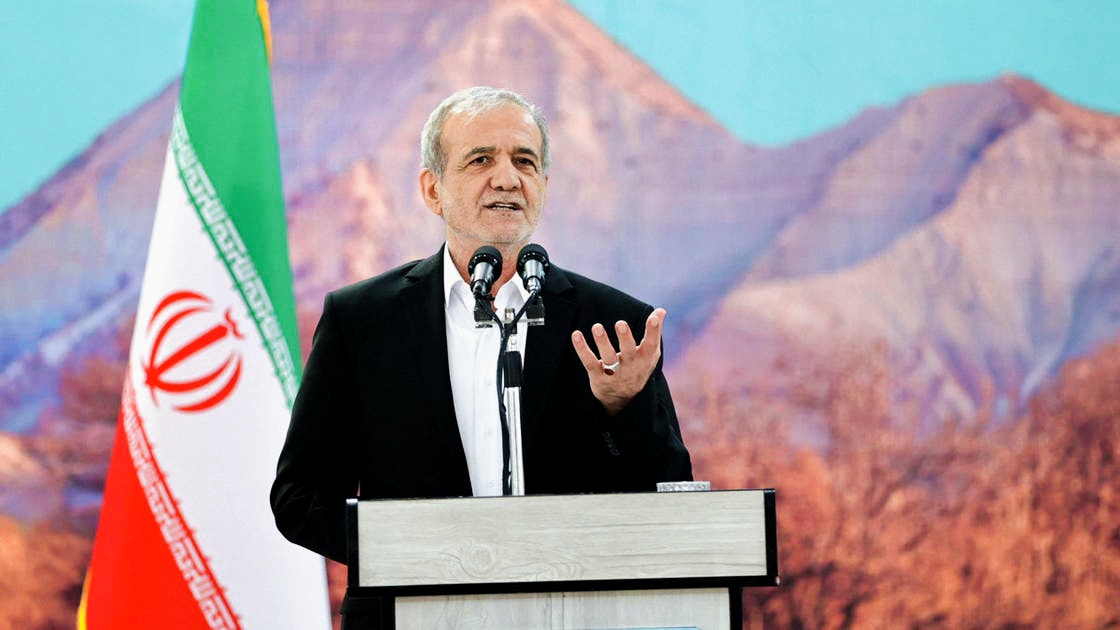The Iranian President Masoud Bazshakian has affirmed that Tehran is not seeking to expand the war zone or destabilize the Middle East, but at the same time, it is ready for a strong and painful response to any aggression.
In his statements, Bazshakian emphasized that "the diplomatic window is still open," expressing Iran's desire to build a new future based on compassion, harmony, and rationality, while acknowledging the need for self-criticism and learning from the past.
These statements come at a time of escalating tensions between Iran and Israel, following the Israeli airstrikes on Iranian sites on June 13, which targeted military and nuclear sites. Tehran responded by launching drones and missiles at Israel, leading to American intervention by bombing Iranian nuclear facilities on June 22.
Despite the ceasefire announced by US President Donald Trump on June 24, Iran does not trust the ceasefire, as confirmed by Iranian Defense Minister Brigadier Aziz Nasirzadeh, who revealed the preparation of multiple scenarios in anticipation of any new adventure, emphasizing that the 12-day war was a maneuver to enhance Iran's defensive and offensive capabilities.
These developments occur amid the stalled nuclear negotiations between Tehran and Washington, especially regarding the uranium enrichment issue. Iran refuses to relinquish its right to enrichment, which has reached 60%, while the Trump administration considers it a "red line." Experts point out that uranium enrichment to 90% is required for making nuclear weapons.
It is worth noting that these tensions cast a shadow on regional stability, with warnings of potential escalation, as Iran continues its constant military capabilities rebuilding despite the recent war, according to Brigadier Eiraj Masjedi, Assistant Coordinator of Operations in the Quds Force of the Iranian Revolutionary Guard.

